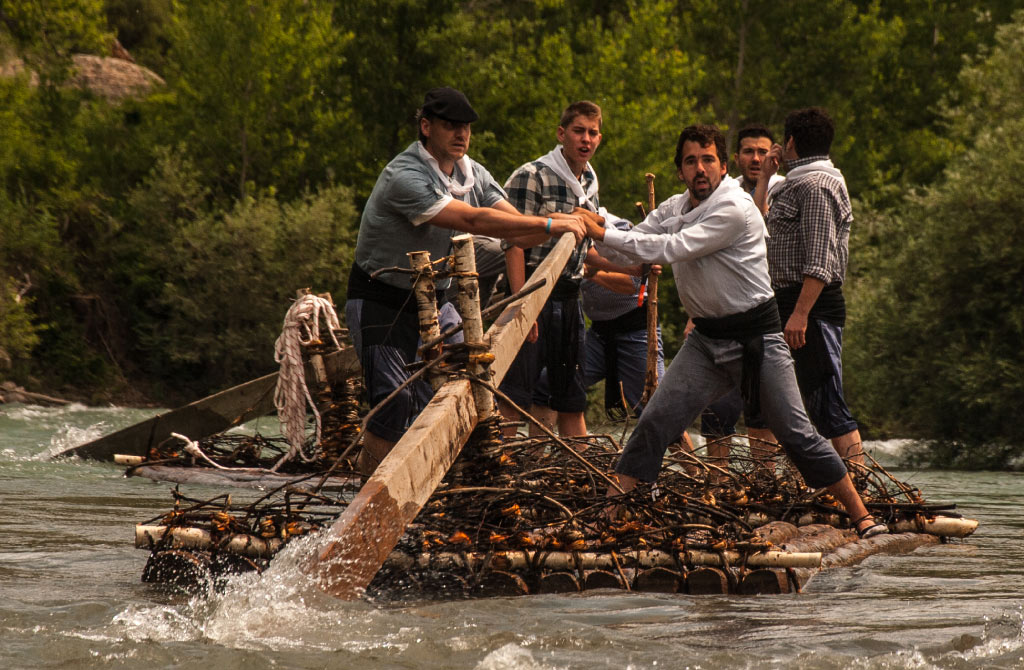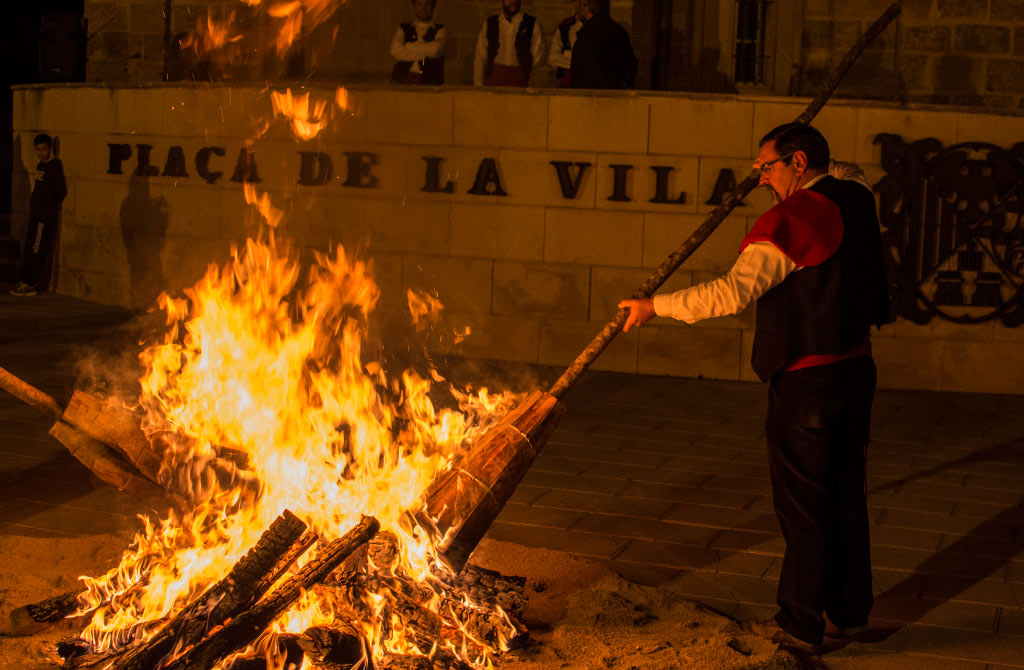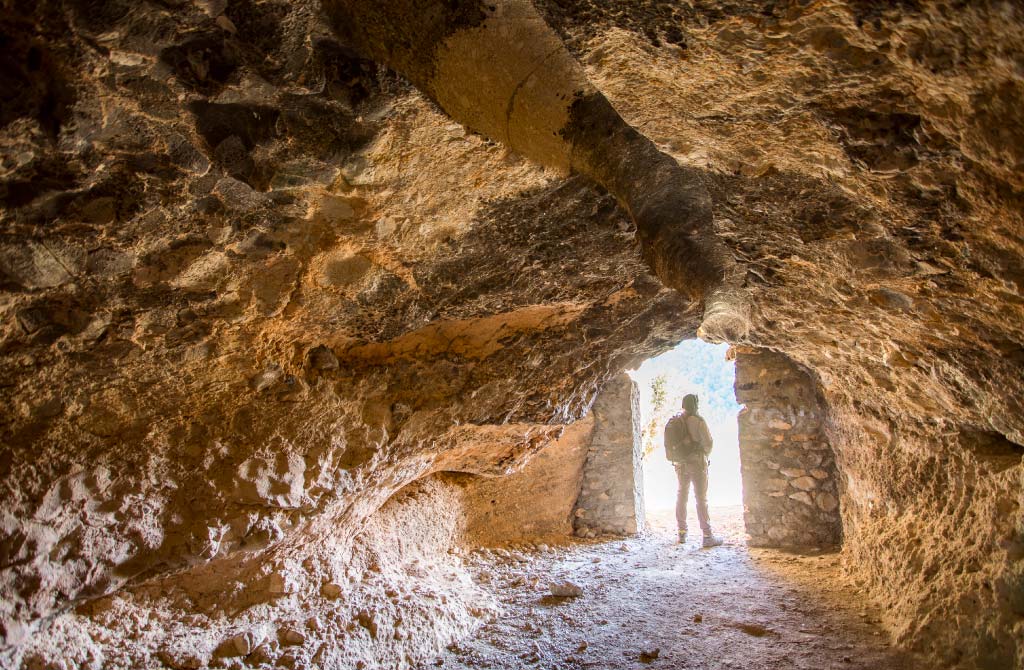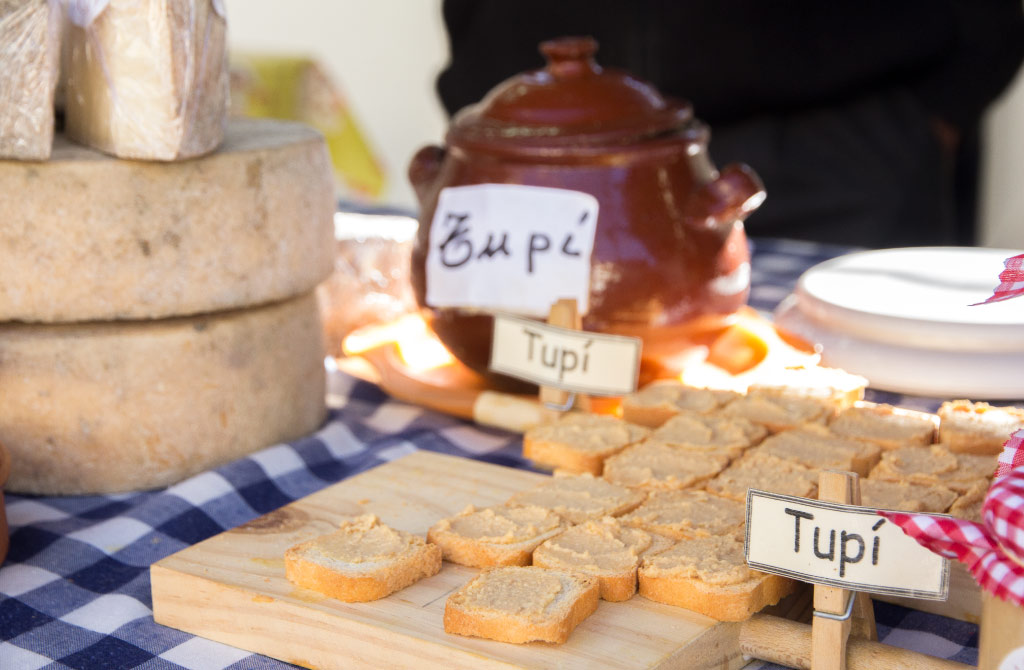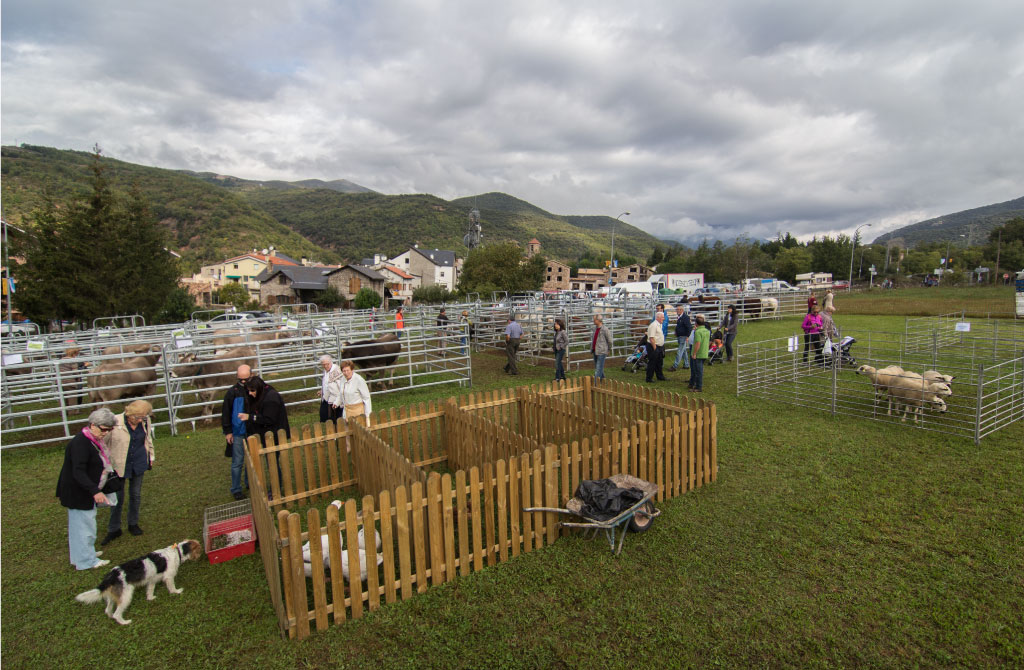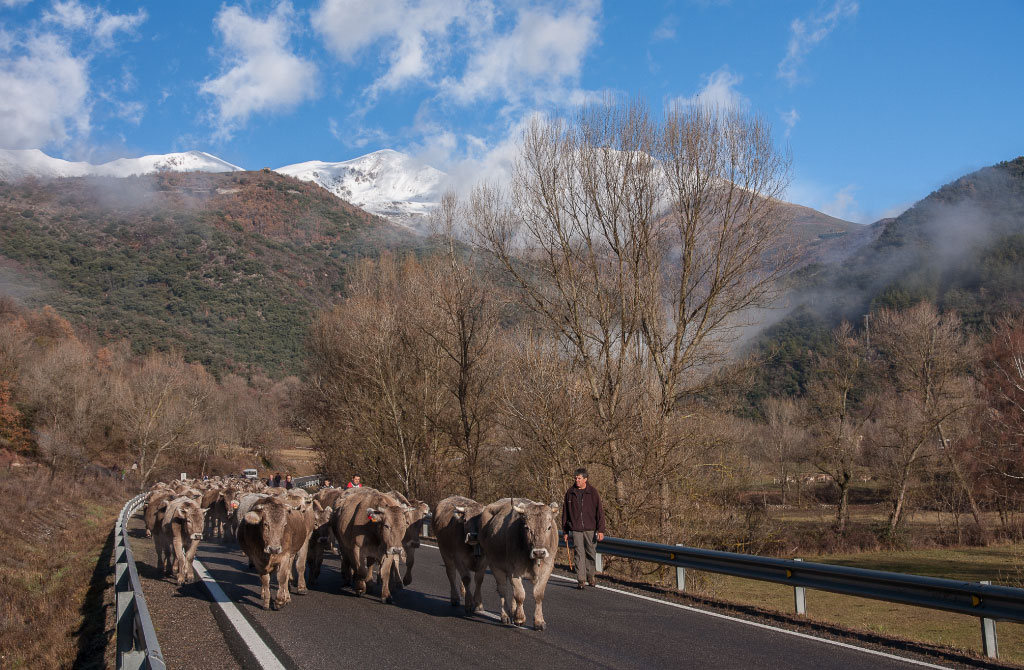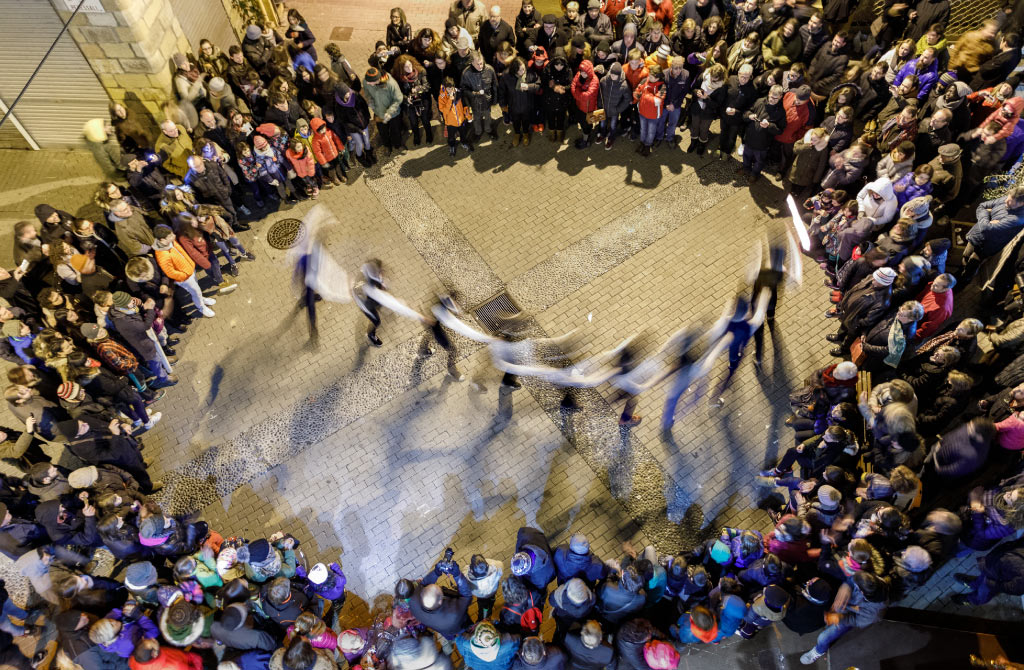INTANGIBLE CULTURAL HERITAGE OF THE PYRENEES AND THE LANDS OF LLEIDA
EL PALLARS JUSSÀ
A WORLD OF FIRE AND WATER
It is just at that point on your visit when it feels as though you have seen everything that this comarca (local district) has to offer that you come across a territory that has a character all its own. The ancestral identity of El Pallars Jussà has remained untouched by changing trends and fashions, as has the bond that its people have with the elements of fire and water that is truly remarkable.
The journey
It is in this valley, in the foothills of the Pyrenees, that the river becomes the scene for an exhilarating adventure as the raiers (river rafters) begin their descent. Generations of Pallarsesos have worked to the ebb and flow of the river, transporting logs from the mountain forests to the settlements further downstream. Visitors will be able to immerse themselves in this long-established tradition on the Diada dels Raiers (Day of the River Rafters) when, every July, families and friends come together on the banks of the River Noguera Pallaresa to enjoy a festival that is a heartfelt tribute to the people of a bygone age. This respect for the land and its heritage is also the basis for the festival of the Falles (Flaming Torches): an ancient pagan ritual that still endures today, largely thanks to the efforts of the people of Jussà. During the Falles de la Mare de Déu de Ribera (Torches of Our Lady of Ribera), in June, visitors will have the chance to become one with the Pyrenees, for a time, through a mystical experience of fire and shadows. As they make their way down the mountain of Santa Magdalena, guided by red-hot beacons, they will feel that they are in a very special part of the world; one which has a very special and unique personality.
A trip through the Intangible Heritage of El Pallars Jussà is not without its relaxing moments either. These can be as simple as sitting in a village square and learning some words of Pallarès. Although it sounds like a dialect belonging to a mythical past, visitors will quickly discover that it is a language which is very much alive and well. They will leave this area taking a potxó, or small reminder, of Jussà with them. In this reawakened language, the older people will explain to visitors the tales that were once told to them, by their padrins (grandparents), which include the legend of the Cova del Serpent (Serpent’s Cave). They say that on the way to the Monestir de Sant Pere de les Maleses (Monastery of St Peter of Les Maleses), there is a cave where a huge snake once lived and used to devour anyone, whether person or animal, who dared to pass by. However, it is only by going from door to door, in every village, that visitors will really find out all there is to know about the hidden magic of this area.
On this quiet journey through the Intangible Cultural Heritage of Jussà, visitors will also be pleasantly surprised by the dining experiences that await them in the local hostels and taverns. They will be tempted to try all the regional dishes that have been handed down by the padrines (grandmothers): the authentic sorceresses of the Pyrenees. Their hard work in the kitchen has led to the creation of mouth-watering recipes for lamb, quince and mushrooms, and for all manner of charcuterie, including the excellent girella (cured lamb sausage), which captures – to perfection – the flavours of the comarca (local district). Visitors should not forget to try the sang (blood) of the land either: humble and yet authentic wines produced under the quality criteria of the Denominació d’Origen Costers del Segre with which they can familiarise themselves at the Fira del Vi de Talarn (Talarn Wine Fair) or at the Jazzivi de Figuerola d’Orcau (Jazz and Wine Festival of Figuerola d’Orcau). Happy to be once again in this part of the Pyrenees, visitors will discover that it will be at the dances and festivals that they will develop an everlasting bond with the local people. For the celebration during the festival of Sant Antoni Abad (St Anthony the Abbot) and for the Festa Major, in Tremp and Palau de Noguera, the local people put aside their everyday cares and woes and join in the festivities that surround the Ball del Contrapàs (Contra Dance), at which farmers give thanks for the harvest; this is yet another emotional bond that reveals Jussà’s true soul. Without a doubt, the Pallarès is a person who is grateful for the land they work and the legacy of their ancestors. This emotional tie is also evident in the respect given to traditional trades and to animals which visitors will come across at the Fira Ramadera de la Pobleta de Bellveí (Livestock Fair of La Pobleta de Bellveí) and at the Diada de Rememoració de la Fira de Salàs (Day Remembering the Salàs Fair). It is a chance for farmers to update themselves on new innovations in a world of hard work and perseverance. The raça bruna (Pyrenean Brown Cow), xarol·lesa, (Charolais) salers (Salers) and llemosina (Limousin) are all typical local cows, while it is also common to see xisqueta sheep and various types of horses. These are the animals that shape the landscape, and every autumn, without fail, herds of cattle, sheep and horses are driven down from the mountain pastures to the fields below where they will spend the winter. Travelling from the high pastures to the valley below and back again is what a journey through the authentic and ancestral Pallars Jussà is all about.
Diada de la Rememoració de Salàs de Pallars, November.
Transhumància cap a la plana (transhumance movements of cattle between the mountains and the plains).
October and June.
